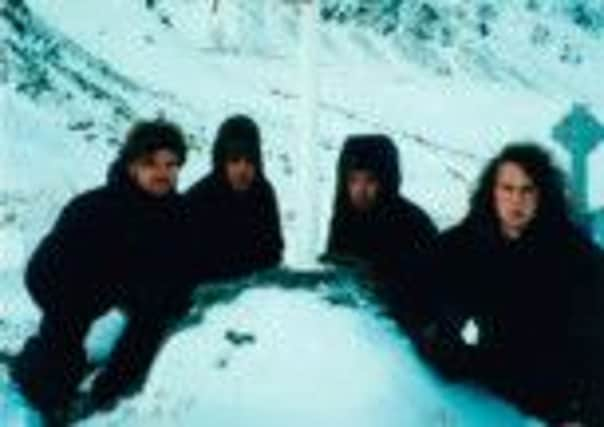Shipwrecked Scot inspired by Robinson Crusoe line


When Matt Lewis, from Aberdeen, found himself on the Sudur Havid, a fishing vessel sinking during a storm off Antarctica, he did not arm himself with a knife like other members of the crew with the intention of fighting their way onto a life raft.
Instead, he remembered a line from a film about Robinson Crusoe: “All men must die; it’s not when but how that matters” and was able to calm himself down enough to organise the remaining crew, instruct them on how to put on their life jackets and launch the two remaining life rafts.
Advertisement
Hide AdTwo crewmen had already drawn knives and commandeered a life raft designed for 12, leaving the remaining 36.
The shocking events of June 1998 are revealed in a new book, Last Man Off, written by Lewis about his experience. Unable to find a job after graduating, he signed on as a “scientific observer” on a trawler fishing for Patagonian toothfish on a three-month trip from Cape Town towards the Antarctic.
The ship’s owners had cut costs by buying low-quality water pumps, hiring crew with false papers, and then pressured the captain to fish during the height of a once-a-year polar storm when the waves were ten metres high.
A crew member had warned Lewis not to expect camaraderie in the event of a mishap: “Watch your knives, Matt. If she sinks, people will fight with knives. They would stab you for a place in a raft.”
On Saturday, 6 June, the ship was so low in the sea with caught fish that it was taking on water, which was compounded by the stormy conditions. The pumps became blocked with fish waste, but instead of helping to fix the pumps the ship’s engineer, fearing that the ship might sink, went to his cabin to retrieve his engineering diploma.
At 3pm, the ship rolled to one side and did not roll back. Over the next 30 minutes it began to sink, at which point the two crewmen made their selfish dash for safety.
Advertisement
Hide AdAs Lewis recalled: “I realised how bad it was and began to hyperventilate, then I remembered the line from the movie about Robinson Crusoe, which I’d seen recently. The line was: ‘All men must die; it’s not when but how that matters’. It just calmed me down. No-one was giving orders so I just started to do it.”
He began checking the crew, moving to the back of the boat and telling them that they would be fine. As there had never been a safety drill and many of the crew could not swim, he instructed them on how to put on their life jackets.
Advertisement
Hide AdOf the two remaining life rafts that were launched under Lewis’s supervision the first made it away safely but the second, into which he was the last man, was smashed against the ship a number of times by the waves, injuring many onboard and filling the raft with water just above freezing. Of the 17 on the raft, seven were alive by the time they were picked up by the Isla Camila.
The crew totalled 38, of whom 17 were killed, including the two who made off in the lifeboat, which without the weight of others was thought to have been blown over.
Today Lewis, 39, is married with two children and, as Dr Bug, educates schoolchildren on animals and insects. He named his first daughter Camila after the ship that rescued him. “I was lucky and so were the rest of us who survived but I know that there are still countless fishing vessels with crews whose owners drive them into terrible weather just for the sake of money.”
The story of Robinson Crusoe by Daniel Defoe was inspired by the story of the Scotsman, Alexander Selkirk, who was shipwrecked for four years in the South Pacific.